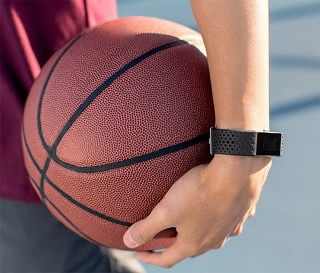
Tech & Sci
17:39, 04-Aug-2017
Fitbit comparisons risk putting teens off exercise – new research

Wearable exercise trackers like Fitbits could have an adverse effect instead of a positive one on encouraging teenagers to exercise, according to a new report from Brunel University London.
In a study tracking 84 students aged 13 to 14 who wore a Fitbit for eight weeks, researchers found that the novelty of the devices for the teenagers wore off obviously after a month.
What's more, the Fitbits even made some young participants feel less confident about their competence at exercising and less connected to the peers, said the researchers.

Researchers are dubious about whether exercise trackers encourage more activity among kids. /VCG Photo
Researchers are dubious about whether exercise trackers encourage more activity among kids. /VCG Photo
When the subjects could not achieve the activity goal – 10,000 steps a day, for example, it "made them feel really bad about themselves and put them off exercise", said Dr. Charlotte Kerner, one of the lead researchers.
“Competition, peer comparison and social comparison to normative predetermined targets result in only short-term motivational effects,” she added.

In the past, researchers thought wearable fitness trackers could add social factors to inspire kids to compete against peers in physical activity. /Fitbit Photo
In the past, researchers thought wearable fitness trackers could add social factors to inspire kids to compete against peers in physical activity. /Fitbit Photo
This is not the first time that scientists have found fitness trackers don’t necessarily help people do more exercise.
Last year, a study carried out by an international team tracking 800 people wearing exercise trackers for a year concluded that they provided no "noticeable improvements" to health.

SITEMAP
Copyright © 2018 CGTN. Beijing ICP prepared NO.16065310-3
Copyright © 2018 CGTN. Beijing ICP prepared NO.16065310-3